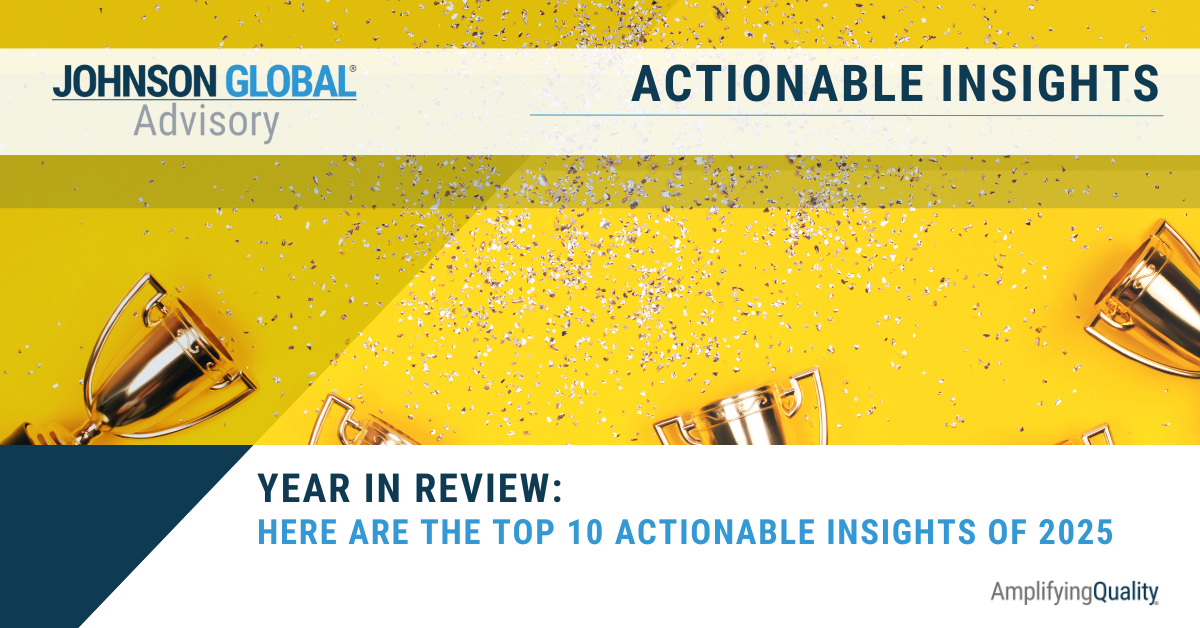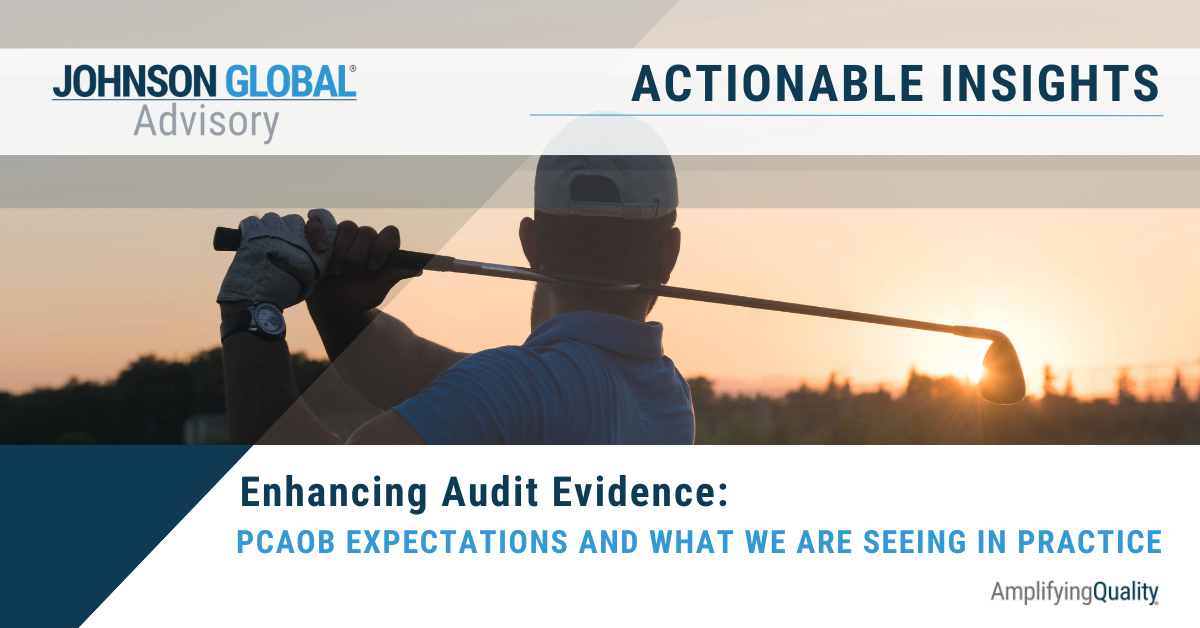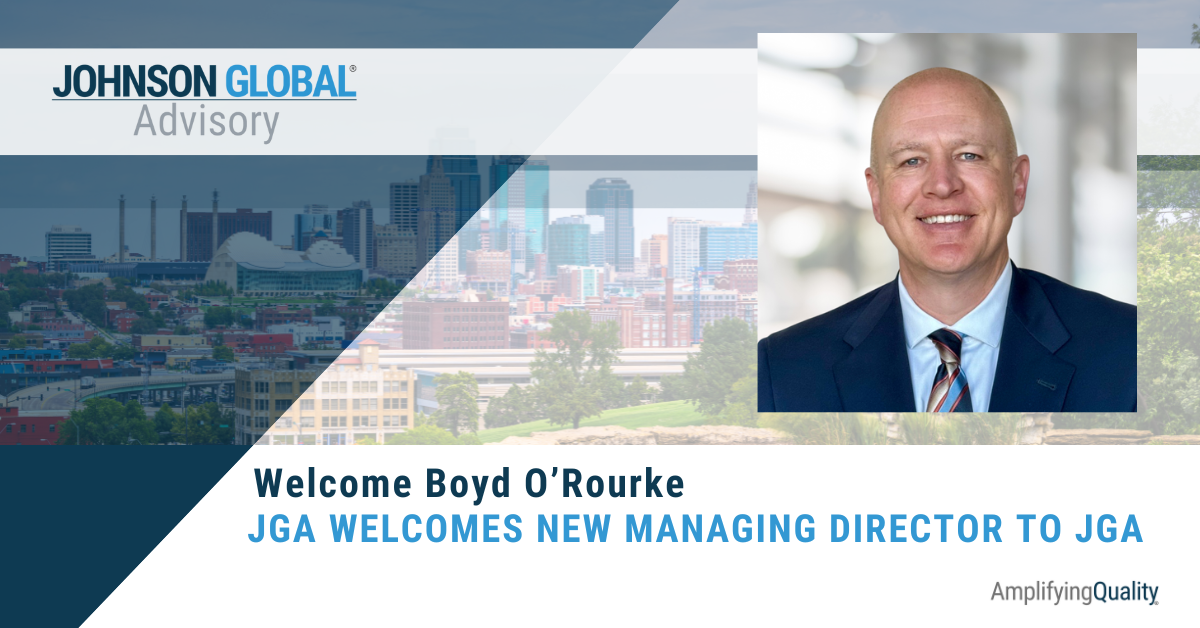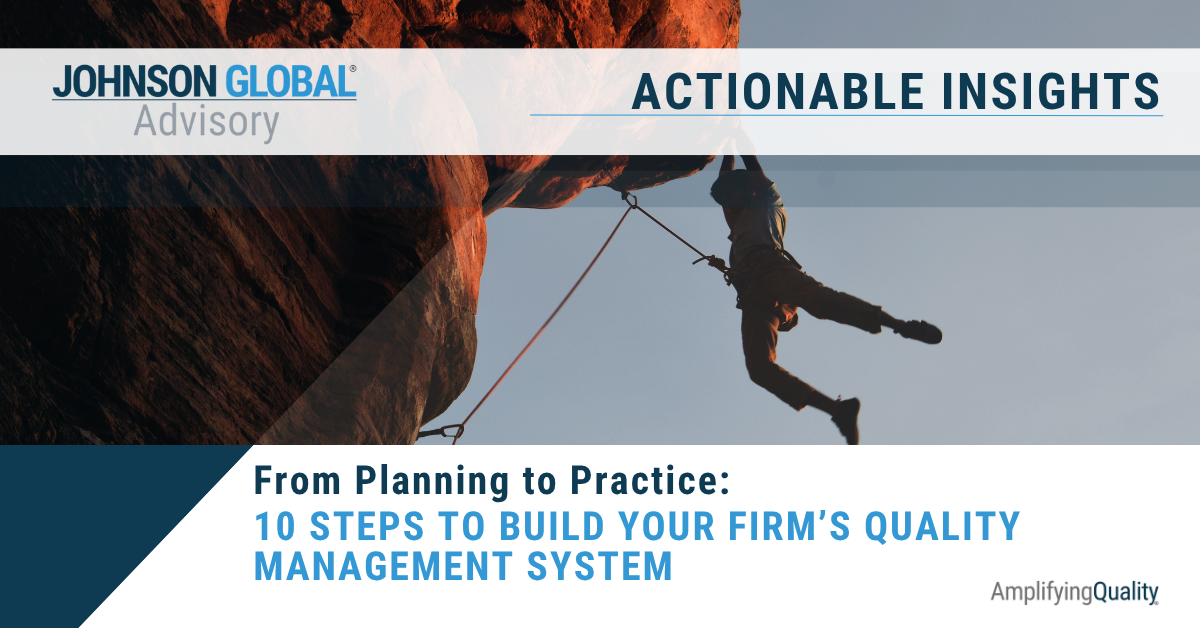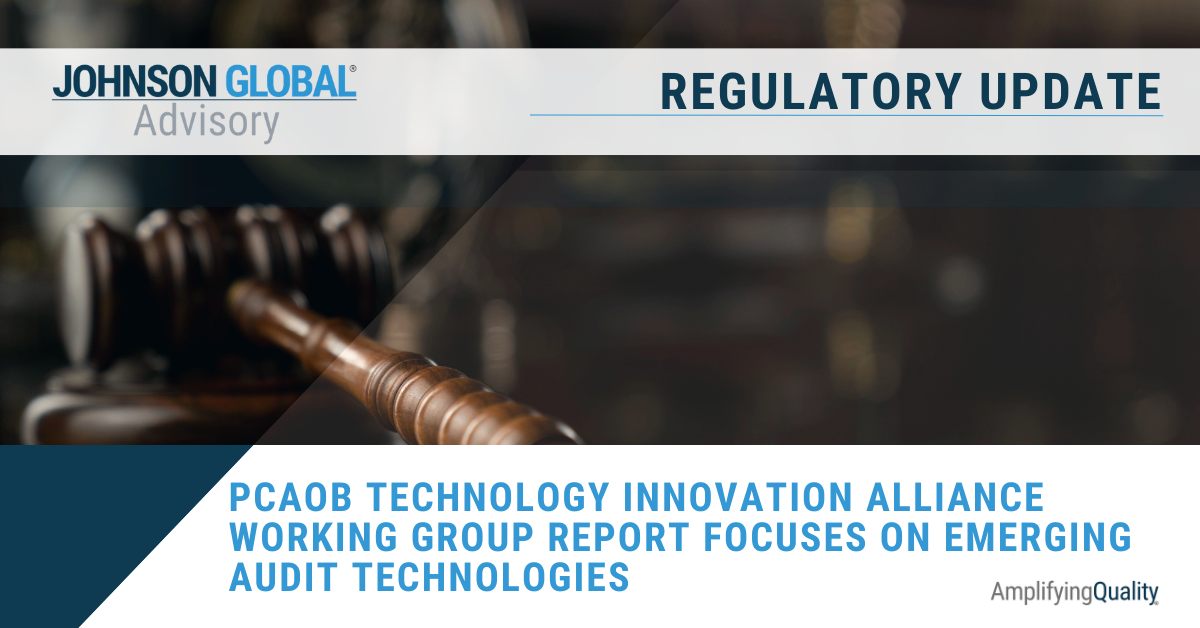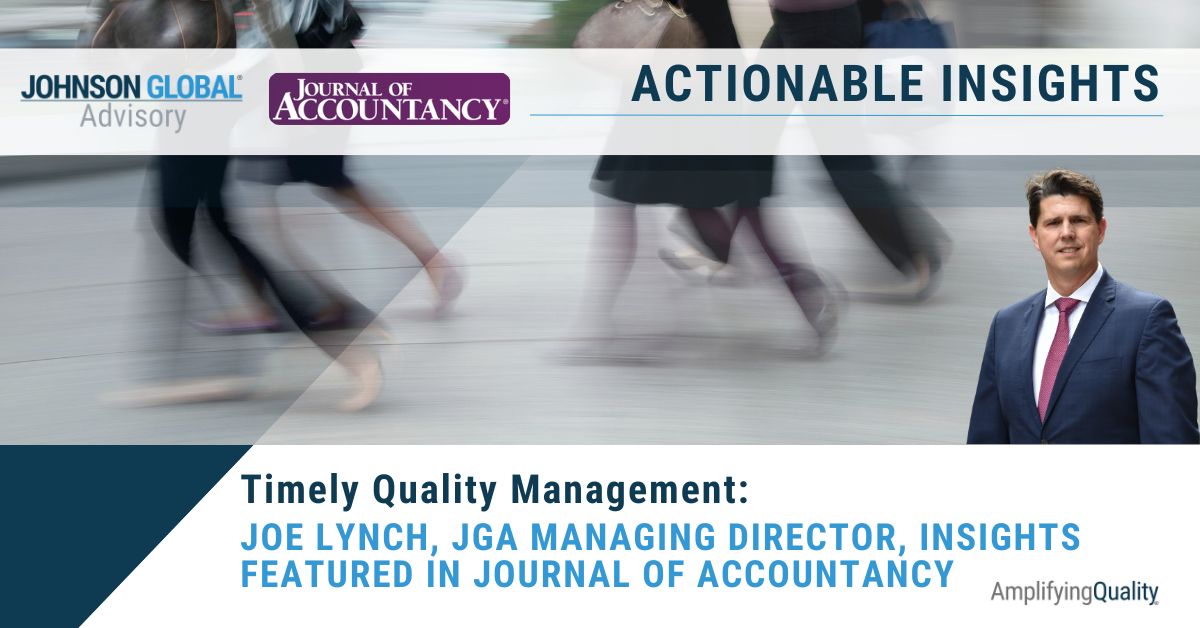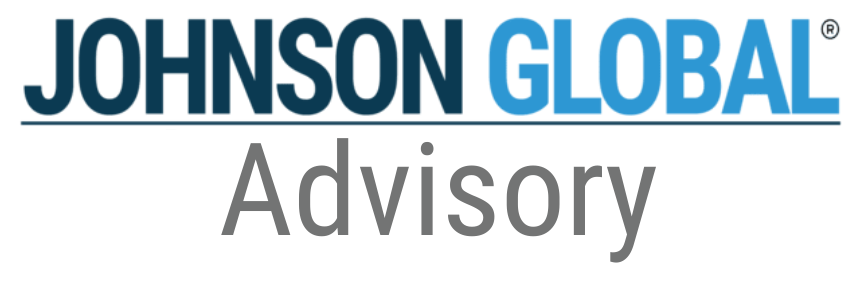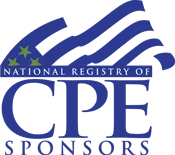Constant Change: Recap of PCAOB Hot Topics from the 2021 AICPA National Conference
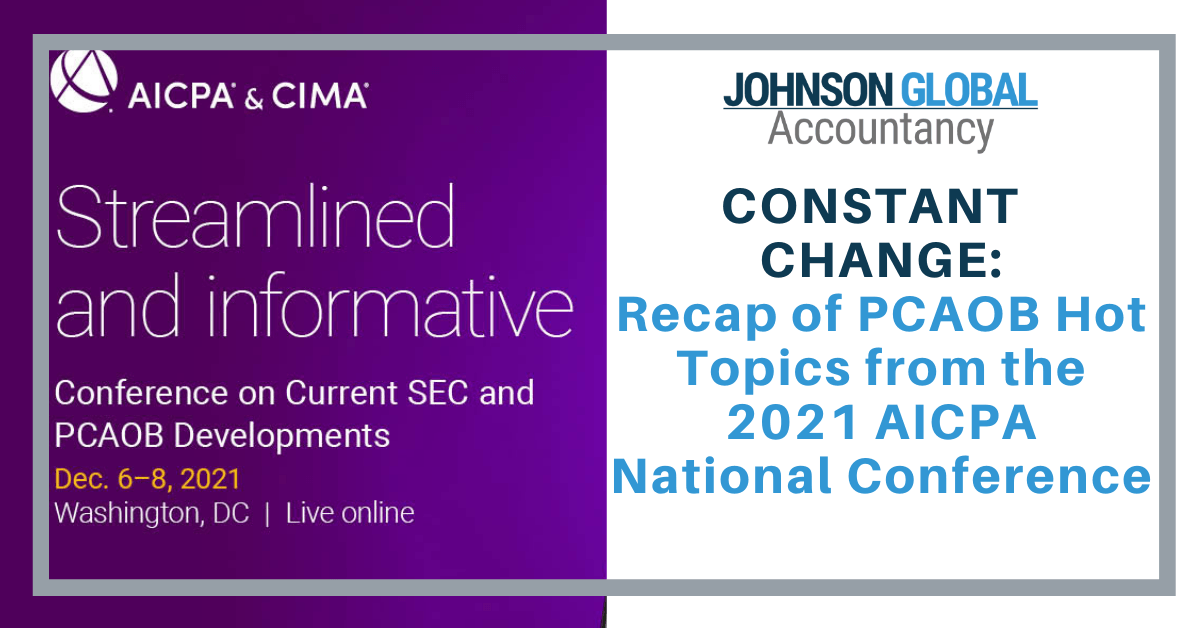
Last week, the annual AICPA National Conference on Current SEC and PCAOB Developments was held in-person in Washington D.C. (as well as virtually for those who could not attend). Most of my conversations started with a reflection of how nice it was to connect with peers face-to-face. In addition, Johnson Global Accountancy was proud to underwrite this event. It was truly gratifying to catch up with so many clients with whom we have only had the pleasure of working with over Zoom.
As always, there were updates provided from a wide variety of speakers covering many accounting and auditing-related topics. If you were not able to join the event, here are a few important SEC and PCAOB-related topics that were discussed by the various presenters.
Inspection Program Updates: Inspection Focus, Reverting Back to In-person Inspections and Continued Unpredictability
Although the PCAOB Board members did not speak at this year’s convention, PCAOB staff provided updates as follows:
- Areas of inspection focus – Based on 2021 being the first full year of the pandemic, inspectors focused their reviews on impairments, going concern assessments, allowance for loan losses, and fraud risks. For 2022, the PCAOB sees the audit risks being driven by IPOs, disruption in supply chains, continued negative effects from COVID-19 on certain industries, and the focus on audits of SPAC and de-SPAC transactions.
- Confirmations – George Botic, Director - Division of Registration and Inspections, spoke at some length about the sufficiency of procedures related to confirmations. During the process of supporting our clients on inspections, we have noticed an increase in inspectors’ questions around the confirmation process, especially when firms use a confirmation service provider to facilitate their confirmation process. Are firms doing enough to maintain control over the confirmation process when they use a service provider?
- In-person inspections – In all likelihood, starting early 2022, PCAOB inspectors will be headed back out to firm offices to conduct their inspections in-person. Pre-COVID, the PCAOB did perform a small number of inspections remotely, but personally, I believe the inspection process is much more efficient when inspections are being performed face-to-face.
- Unpredictability – The PCAOB will continue to increase the percentage of random selections and review non-traditional focus areas such as cash and cash equivalents. This is consistent with last year’s comments at the conference and is meant to encourage firms to perform quality audits across all audits and all areas of each audit. Our belief is that all firms should be reflecting on the selection process of their monitoring programs for their pre- and post-issuance reviews. Firms should not focus their monitoring entirely on their larger, “riskier” clients under a traditional risk assessment model but should consider adding a level of randomness in their selection process. In addition, we encourage firms to consider including some non-traditional focus areas in your monitoring reviews.
Independence: Continuing Violations
Firms continue to struggle to comply with independence standards. With the increasing complexity of client relationships in a truly global economy, auditors need to pay extra attention to evaluate whether they are truly independent of their clients, especially with firm offices and client subsidiaries located all over the world. The message relayed to attendees was that auditor independence must be a shared responsibility – between the auditor, management, and the audit committee. While firms often do their own assessment, they should be asking, “Is the audit committee involved? What is the audit committee’s conclusion?” During the SEC Enforcement session, it was stated that the SEC has little patience for firms that notify the SEC of an independence violation that came about out of their own making. Identifying independence violations isn’t sufficient … preventing them is more important. Enforcement staff also mentioned that penalties may need to be ratcheted up as it seems like the punishments are not severe enough to change behavior.
Materiality: Incorrect Application of Staff Guidance
Although not a new concept, materiality was also discussed in a number of sessions. The point was raised that oftentimes engagement teams are misapplying the guidance of SEC Staff Accounting Bulletin No. 99, Materiality (“SAB 99”) – which basically requires that even if an error or misstatement is quantitatively immaterial, from a qualitative point of view, such an error or misstatement could ultimately be concluded as being material. The SEC has noted that some teams are applying this approach, but in the inverse direction. The SEC challenged and inherently asserted that it is not appropriate (at least, not often) to argue that a quantitatively material error or misstatement is immaterial because the engagement team concluded the error or misstatement to be qualitatively immaterial. Additional points raised by the speakers that auditors should consider as they are concluding on materiality include:
- Disclosures must be accurate and cannot be misleading – don’t walk right up to the line.
- All information needs to be considered, not just the information that supports your preconceived conclusion. What that means is try to resist the tendency to use the guidance to get to a pre-determined judgment.
- Do not look at SAB 99 as a checklist that can be added up and scored. The criteria listed in the staff guidance is not an exhaustive list and engagement teams are strongly encouraged to read the staff guidance in its entirety.
- Lastly (and this is key) – a material accounting error should generally equate to an auditor concluding that there is a material weakness that should be disclosed. It takes a lot to conclude that a material error in the financial statements, is something less than a material weakness.
ESG: Increasing Transparency and Investor Confidence
One of my biggest takeaways from the conference was how rapidly ESG has moved to the forefront of the profession. In fact, the CAQ stated that its own research has found that 95% of S&P 500 companies are currently reporting some ESG information. Many speakers from different interest groups (including the SEC), discussed how investors and users are looking for some sort of approach or standard that ensures that ESG information is comparable, consistent, and reliable from company to company. It is clear that ESG is going to continue to gain prominence as the CAQ reported that 91% of stakeholders would like to see ESG information assured over time.
Quality Control Standard Update
In last year’s conference recap, we reported that it had been exactly a year since the PCAOB released the Quality Control Concept Release for comment (in December 2019). Now another full year has passed and there has been no noticeable movement on the new QC standard from the PCAOB. Both the IAASB and AICPA have made great strides and are much further along than the PCAOB. Although undoubtedly the PCAOB sees the revised QC standard as a high priority, the fact that the majority of the Board is new to their roles cannot be good for a timely issuance of the standard. However, as both the IAASB and AICPA guidance is out there, firms should already be planning for this eventual PCAOB QC standard and seeking out resources and tools to get ahead of the eventual requirements.
Looking Ahead
In summary, the conference did not disappoint. Clearly there are new considerations bubbling up (namely ESG, digital assets, and cybersecurity), but there are still old established topics that have been around for a while that are resurfacing again (think independence and materiality).
The auditing profession is continually evolving. As we continue to cope with COVID-19 and the advent of remote work, as we navigate the great recession, as ESG rises in prominence, as QC standards are reshaped, as technology continues to permeate issuer and auditor systems and processes, and as regulators continue to “keep up” with the developments, in the words of Heraclitus, “The only constant in life is change.” Rest assured, at JGA we will continue to monitor and communicate these updates as they develop.
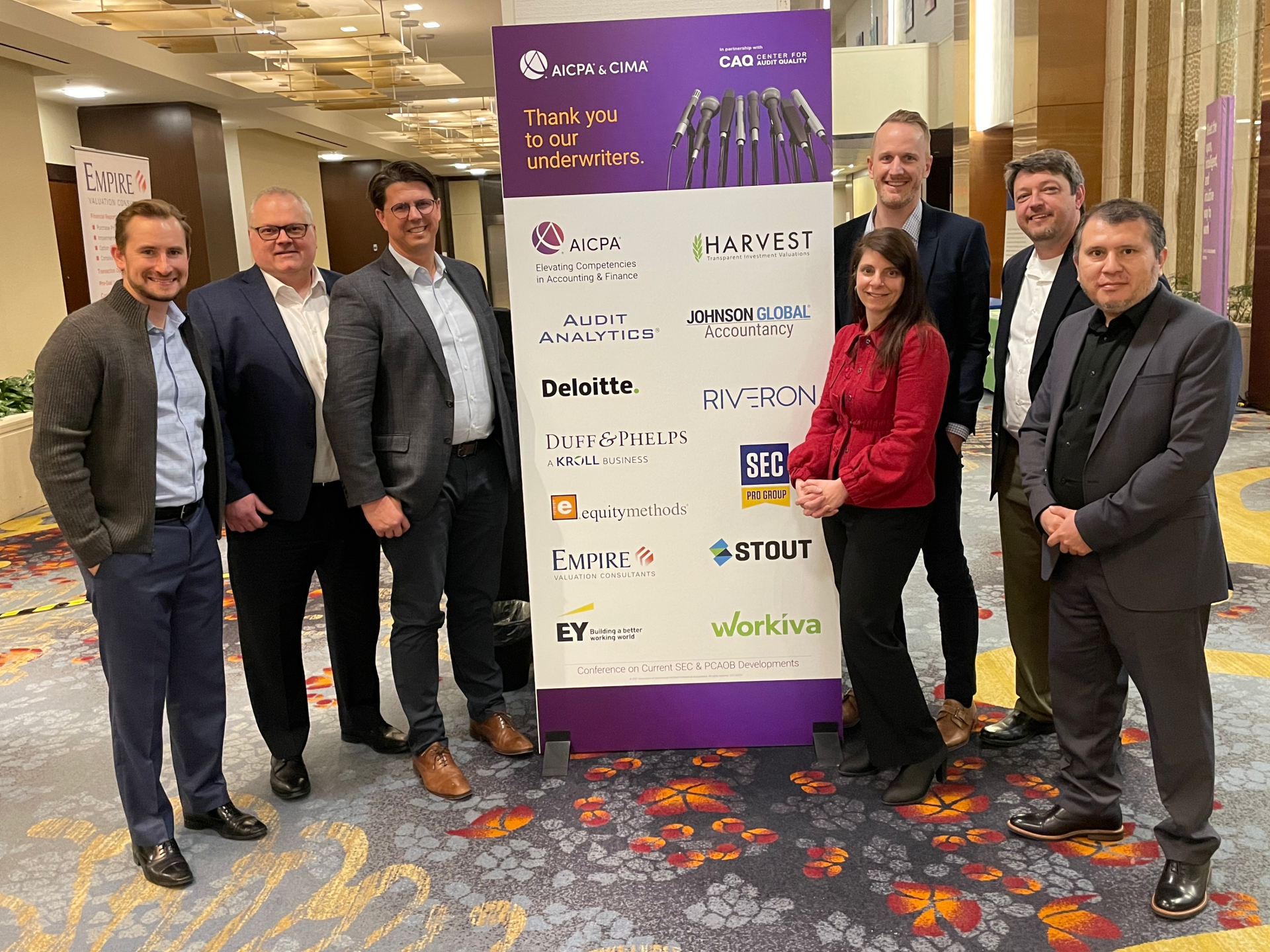
Geoff Dingle, JGA Managing Director, works with PCAOB-registered accounting firms helping them identify, develop, and implement opportunities to improve audit quality. With over 20 years of public accounting experience, he spent nearly half of his career at the PCAOB where he conducted inspections of audits and quality control. Geoff has extensive experience in audits of ICFR and firms’ systems of quality controls. Prior to the PCAOB, he worked on audits in various industries at Deloitte in Atlanta and Durban (South Africa).New Paragraph
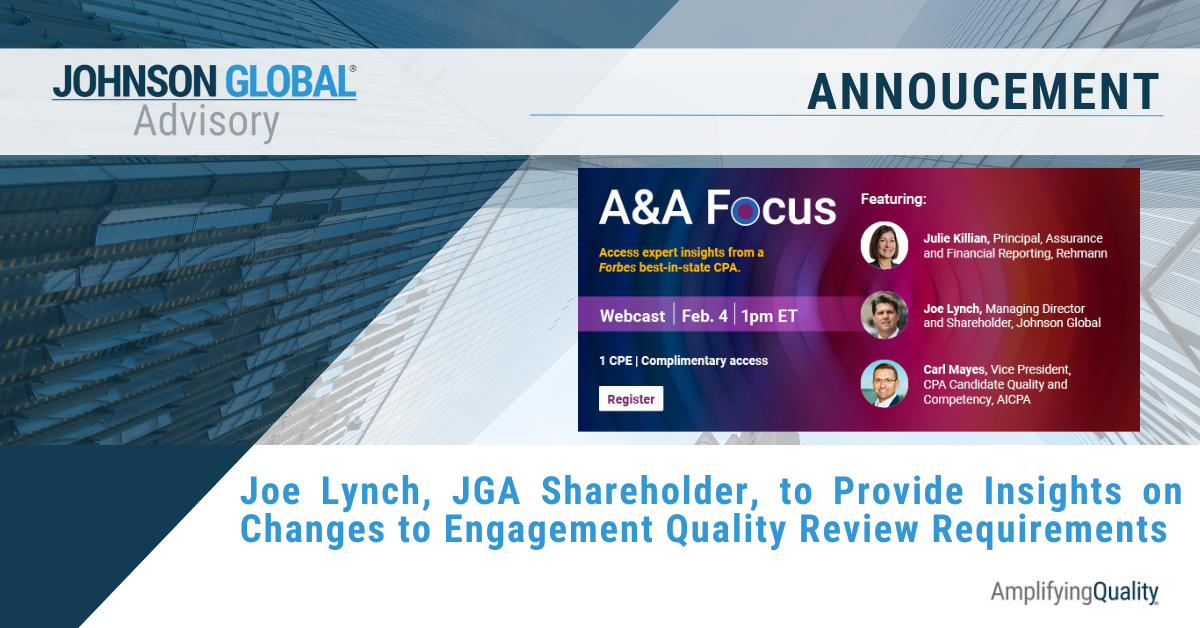
Joe Lynch, JGA Shareholder, to Provide Insights on Changes to Engagement Quality Review Requirements

